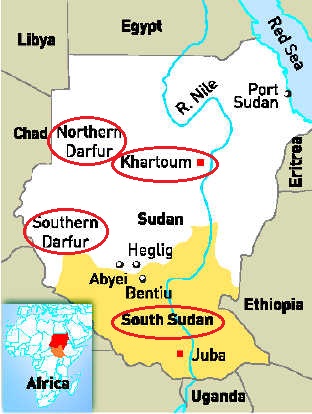7667766266
enquiry@shankarias.in
What is the issue?
What was going on in Sudan?
How was Bashir's rule?

What were the earlier conflicts?
What is the immediate cause for the current protetsts?
How did it evolve thereafter?
What happened finally?
Why is protest still continuing?
Source: Indian Express